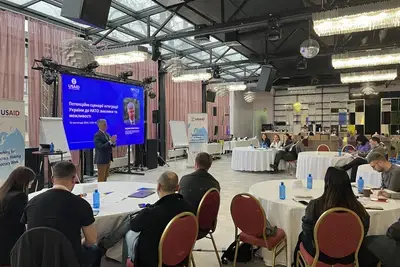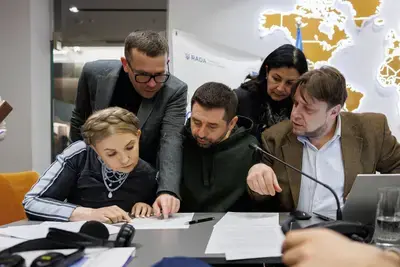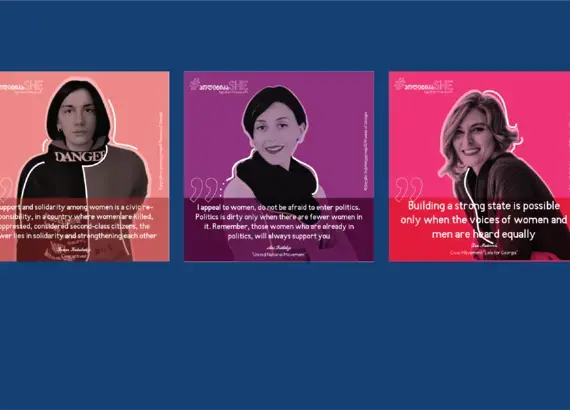
Success Story
Combatting Violence Against Women in Georgian Politics
For years, Georgia has held an election nearly every October, whether for local, parliamentary or presidential offices. The faces of political leaders are thus often plastered across walls, billboards and TV broadcasts. Yet, these images have one clear common characteristic: they’re almost uniformly men. Women face multiple barriers to enter into politics, including prevailing gender stereotypes and institutional obstacles, and often face harassment, threats and violence.
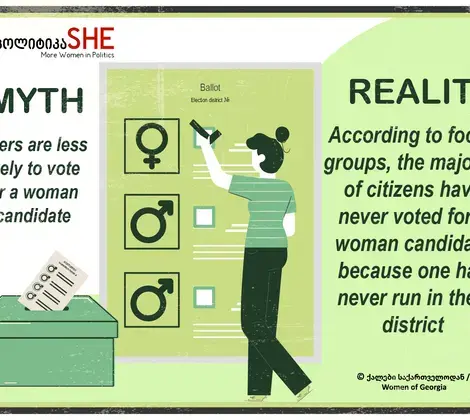
In an effort to disrupt this pattern and change the face of politics in Georgia, several Georgian CSOs, with NDI assistance, monitored online violence against candidates in the 2020 parliamentary elections and launched a public campaign to highlight the importance of gender equality in politics.
Women who do run for office are disproportionately targeted with violence and harassment, particularly in the online space. The Caucasus Resource Research Center (CRRC) illustrated this trend in research conducted around the parliamentary elections. Reviewing the comments on the Facebook pages of 491 majoritarian candidates from August 31 to November 21, 2020, CRRC found that women received 40 percent of the comments categorized as abusive, despite comprising only 22 percent of the monitored profiles. These comments often called for women to return to stereotypical gender roles of staying home and caring for children or attributed their success to personal or sexual relationships with prominent men.
To shift public perception of women in politics, the Women of Georgia project, supported by NDI, launched #PolitikaSHE ahead of the 2020 elections. The aim of the project is to focus public attention on how stereotypes and intimidation can hinder women’s political participation, and how excluding women from politics is detrimental to all Georgians. The campaign managed to reach more than half a million Georgians in all regions of the country through Facebook.
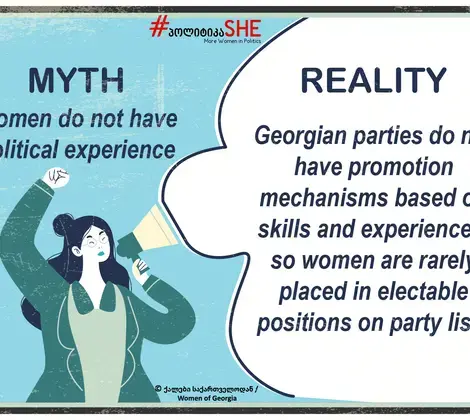
The women who participated shared stories of hardships and struggle, but also of solidarity and hope. While recounting an instance of blackmail and intimidation, Eka Beselia, founder of the party For Justice, spoke of the support she received from other women politicians, even in a highly polarized and politically divisive environment: “This solidarity was the oxygen for me, which gave me great strength to survive. I see that my courage has made a difference for women because to overcome their own weaknesses, they needed an example.”
In addition, #PolitikaSHE provided a platform for Georgians, including those from traditionally marginalized communities like persons with disabilities, youth, and LGBTQ+, to join the conversation about women’s political participation. They raised their concerns and vocalized their support for more women in politics through comments and posts on Facebook. The public’s sustained and extensive engagement with this campaign further illustrated that Georgian voters want to see more women in politics and it provided encouragement to existing and prospective women politicians.
#PolitikaSHE has continued beyond the parliamentary elections, affirming a commitment to promoting women’s political participation across Georgia. The upcoming 2021 local elections will provide yet another opportunity to increase women’s representation in politics and government, as gender quotas come into effect requiring one of every two candidates on proportional party lists to be a woman.
This project was funded by UK aid from the British people.
NDI is a non-profit, non-partisan, non-governmental organization that works in partnership around the world to strengthen and safeguard democratic institutions, processes, norms and values to secure a better quality of life for all. NDI envisions a world where democracy and freedom prevail, with dignity for all.
